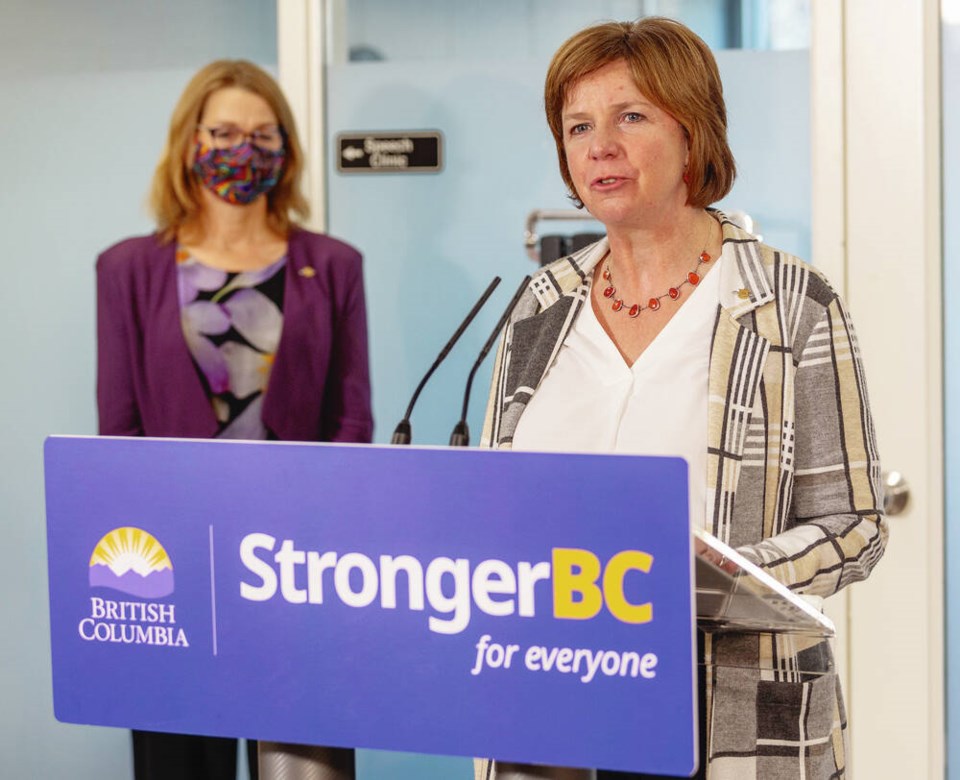B.C. Mental Health and Addictions Minister Sheila Malcolmson has announced 33 new and expanded substance-use programs for youth supported by about 130 new health-care workers.
The new and enhanced services vary by health authority but range from prevention to crisis intervention.
The new staff includes therapists, harm-reduction co-ordinators, epidemiologists, nurse practitioners, outreach workers and Indigenous patient navigators.
“When young people make the courageous decision to come forward and get help, we want supports to meet them,” Malcolmson said at an announcement in Esquimalt.
The new and expanded resources will be available in every health authority, she said.
On Vancouver Island, that includes approximately 27 new health care and other staff, including nurses, outreach workers, social workers, child and youth counsellors, and a new regional youth substance-use clinical specialist.
The new health-care workers will support six new or expanded Youth Short Term Assessment and Response Teams known as Y-STAR, providing outreach in communities, and so-called “in-reach into hospitals” in Mount Waddington, Campbell River, Nanaimo, Port Alberni, Cowichan and Victoria.
The teams will work alongside children and youth ages 12 to 21 and families experiencing mental-health and addiction-related crises.
The teams aim to assist children and youth in crisis, conduct assessments, and help them co-ordinate resources and referrals.
In Nanaimo on Friday, Malcolmson announced a new wellness and recovery centre to expand and integrate harm reduction and treatment and recovery services.
Once fully open, it’s expected to offer medication-assisted treatment, addictions medicine and basic health care.
In addition to an overdose-prevention site, there will be other harm-reduction measures to reduce the risk of toxic drug poisonings. “At this dangerous time of drug toxicity, we want services to meet people [where they are],” said Malcolmson.
The idea is that once Nanaimo’s wellness and recovery centre is completed, it will connect people with substance-use challenges to the supports they need “to stay alive and connect to care,” said Malcolmson.
The overdose-prevention site will open on an interim basis starting Monday at 250 Albert St. Renovations to the centre at the same location will take place over the coming months, with the expectation the centre will be fully operational in late 2023, according to the ministry.
The centre is operated by the Canadian Mental Health Association’s mid-Island branch. Jason Harrison, executive director of the branch, said in a statement the services will offer a dignified and non-judgmental approach.
Island Health board chair Leah Hollins said the health authority is partnering with the Mental Health and Addictions Ministry and the Canadian Mental Health Association to strengthen its harm reduction and substance-use services in Nanaimo.
ceharnett@timescolonist.com
>>> To comment on this article, write a letter to the editor: letters@timescolonist.com



